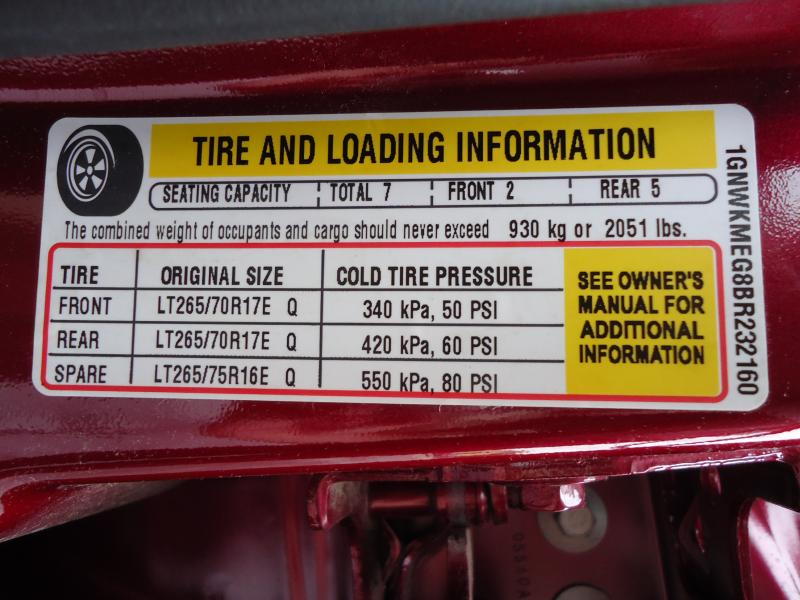rachiepooo
Sep 10, 2015Explorer
Towing question
So we have a 2011 Tahoe equipped with the HD tow package, 5.3L V8, 3.42 axles. The towing capacity is 8,200 lbs and max tongue weight (carrying = 600 lbs / with WD hitch = 1,100 lbs). We do have the Reese WD hitch, sway and torsion bars, and Tekonsa (sp?) brake controller.
We have upgraded our Jayco X213 to a Jayco Swift 267BHS, the dry weight based on the online specs is 5300 lbs but the yellow sticker on our trailer is 5800 lbs. I am wondering what the 500lbs difference is, would it be propane tanks, A/C, awning? The GVWR of the trailer is listed as 7500lbs, but we know for sure we will not be carrying that much stuff.
The dry tongue weight online states 670 lbs and been told different advice regarding this matter. One was to take our payload capacity and deduct the hitch weight off that, and the remaining would be the total weight left for passengers and gear in the truck. Another told us that the tongue weight had nothing to do with payload. ???? Which one is correct?
We know we will feel the trailer back there, but am wondering if anyone else has a similar combo TV/TT set up? How is the drive?
Thanks
We have upgraded our Jayco X213 to a Jayco Swift 267BHS, the dry weight based on the online specs is 5300 lbs but the yellow sticker on our trailer is 5800 lbs. I am wondering what the 500lbs difference is, would it be propane tanks, A/C, awning? The GVWR of the trailer is listed as 7500lbs, but we know for sure we will not be carrying that much stuff.
The dry tongue weight online states 670 lbs and been told different advice regarding this matter. One was to take our payload capacity and deduct the hitch weight off that, and the remaining would be the total weight left for passengers and gear in the truck. Another told us that the tongue weight had nothing to do with payload. ???? Which one is correct?
We know we will feel the trailer back there, but am wondering if anyone else has a similar combo TV/TT set up? How is the drive?
Thanks

